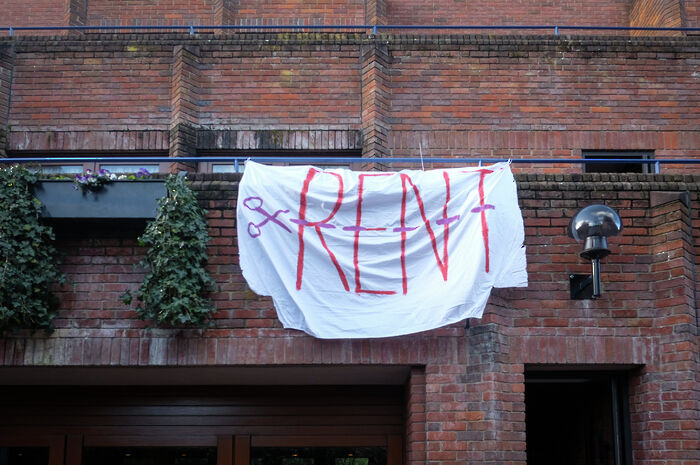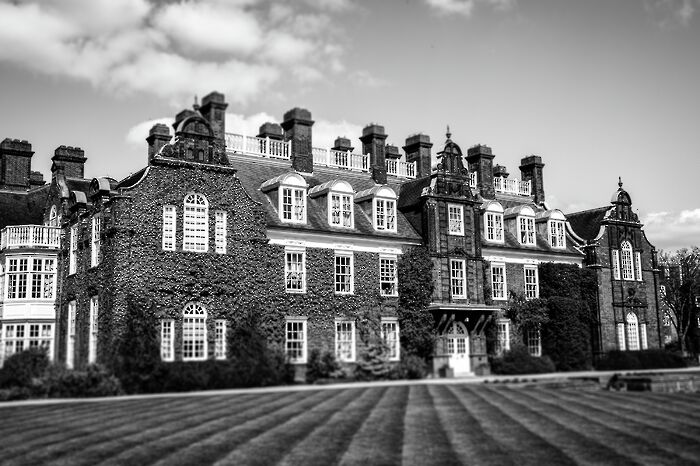Revealed: Giant disparities in college rent charges leave students struggling
As rent campaigns spread across Cambridge, a Varsity investigation reveals for the first time the striking disparities in average rents

There are massive disparities in the average weekly rents and compulsory charges being paid by undergraduate students at different colleges across Cambridge, a Varsity investigation has uncovered.
The investigation comprehensively looked at room costs, including the number of rooms available at different price points, to produce a comparable measure that covers 27 of the 29 undergraduate colleges.
Reacting to Varsity’s findings, student campaign group Cambridge Cut the Rent said that college disparities were “unacceptable”, saying “rents are being used to plug holes in college finances, with students as cash cows on bursars’ spreadsheets.
“People are struggling. Both colleges and the University need to take action, or students will,” said the group.
Outcry over rent costs has grown among the student body over the past two terms, with five colleges having introduced Cut the Rent campaigns, which call for an improvement in conditions, reduced rent costs and reductions to overhead prices.
Rent, ranked
All the colleges, ranked by average weekly rent and costs, excluding Jesus and Murray Edwards (see full article).

Using data obtained under the Freedom of Information Act, as well as publicly available figures, Varsity was able to calculate the average total weekly amount of rent and compulsory charges paid by undergraduates at each college, which is £146.98.
There is a 67% gap between Homerton, the college found to have the cheapest average weekly cost, and Newnham, which had the most expensive. Undergraduates at Homerton on average pay £106.75 a week, 27% less than the overall average, while the average figure for Newnham students is £178.48, 21% more.
Varsity spoke to several students who either struggle to meet the cost of living at their college, or have been dissatisfied with the quality of their accommodation.
Simone Fernandes, a fourth year at Magdalene, arrived at her student house at the start of Michaelmas term to find it had a wasps’ nest outside the bathroom window, forcing her and her housemates to use a toilet across the road from their house, but her college did not take any action for over two weeks after being informed of it.
Charley Barnard, a first year at Newnham, had switch to a longer licence on her room after unexpectedly being made homeless, but could not afford to pay the increased amount. Despite being reassured the charges would be waived, she was charged the increased amount, and had to use her overdraft to pay it.
Barnard told Varsity about a “stigma about being from a low income background at Cambridge”, adding: “It’s alienating that provisions aren’t in place for people like me. Hard-to-access bursaries aren’t an alternative to affordable rent.”

The investigation also reveals the complexity of rent payments across Cambridge, with colleges using vastly different systems for charging students, which makes drawing direct comparisons difficult. There are also significant disparities in the number of weeks that colleges require students to rent their room for, as does the whether or not any supplementary charges included in within the cost of their rent.
Differences in colleges pricing structures make an exact like-for-like comparison difficult, both for prospective students assessing living costs before applying to Cambridge, and for this investigation. Only undergraduate rooms were looked at, and where colleges charge different rates according to year group, the 2017/18 cohort was used. All compulsory charges were taken into account, though minimum meal charges were not, as they then allow students a certain amount of food for ‘free’. Where there was a difference, the figure for the cost of compulsory charges was taken for students living in college.
Variations in the minimum number of weeks that students are required rent their rooms for can have a significant impact on average termly costs. Girton, where undergraduates have to pay for their rooms for 37 weeks a year, was found be the most expensive college on a termly basis, with an average cost of £1973.33 for its 2017 intake, despite the college having no additional costs.
Responding to the findings, Girton College bursar Debbie Lowther told Varsity that “the overall package provided to Girton students represents excellent value for money”, given the length of time that undergraduates have their rooms and the facilities to which they have access.
- This article was amended to update the figures for Fitzwilliam and King’s, and the overall average figure was adjusted accordingly
Rent Revealed
 Comment / Cambridge’s tourism risks commodifying students18 April 2025
Comment / Cambridge’s tourism risks commodifying students18 April 2025 News / Cambridge student numbers fall amid nationwide decline14 April 2025
News / Cambridge student numbers fall amid nationwide decline14 April 2025 News / Greenwich House occupiers miss deadline to respond to University legal action15 April 2025
News / Greenwich House occupiers miss deadline to respond to University legal action15 April 2025 Comment / The Cambridge workload prioritises quantity over quality 16 April 2025
Comment / The Cambridge workload prioritises quantity over quality 16 April 2025 Sport / Cambridge celebrate clean sweep at Boat Race 202514 April 2025
Sport / Cambridge celebrate clean sweep at Boat Race 202514 April 2025








